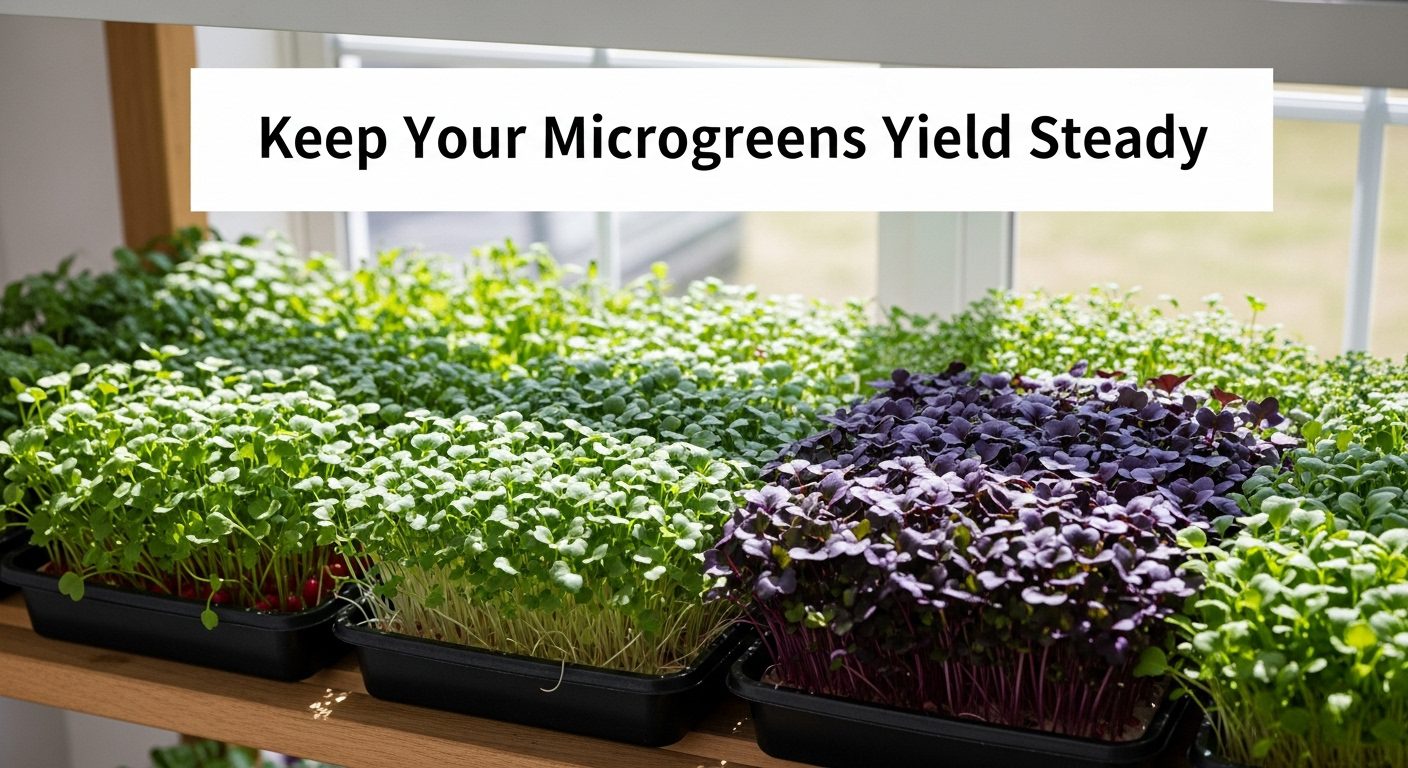
Incorporating native plants in your Michigan garden is a great way to boost local biodiversity. This creates a vibrant space that attracts essential pollinators and wildlife, making your garden a happy place.
By using native plants, you can make a big difference in your outdoor area.
Are you curious about how to transform your garden into a flourishing sanctuary? You can explore various innovative garden ideas, such as rain gardens and cozy patios, to enhance both beauty and function.
This will make your outdoor space a fun and exciting place to be, and you can start creating your dream garden today!
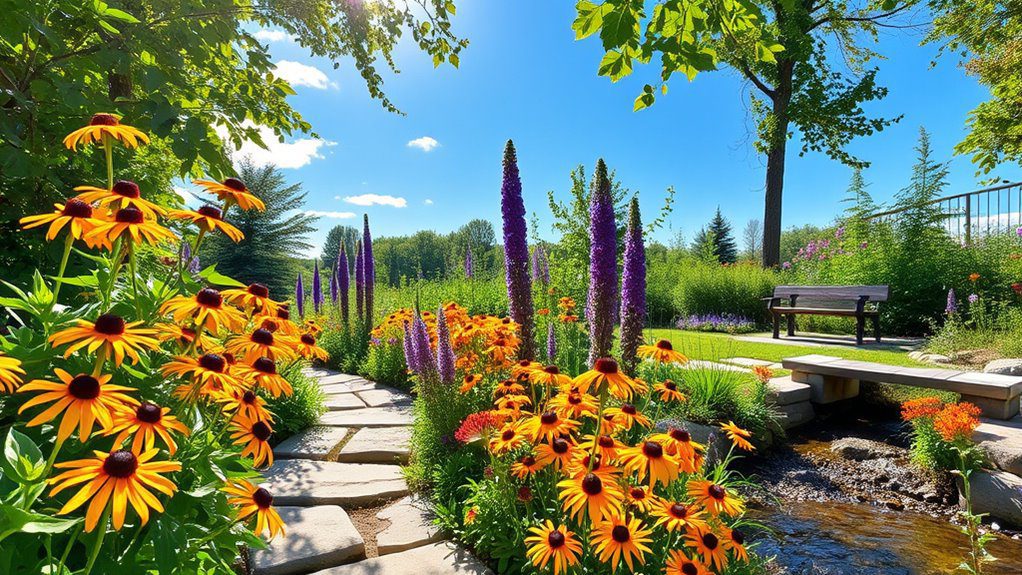
Embracing native plant gardens in Michigan is a sustainable and environmentally friendly gardening choice. Native plants are well-adapted to the local climate and soil conditions, require less maintenance, and provide essential habitat and food for local wildlife, including pollinators. By incorporating species like black-eyed Susans, coneflowers, and butterfly weed, homeowners can create vibrant landscapes that support biodiversity while conserving water and reducing the need for pesticides. This approach fosters a deeper connection to the local ecosystem and promotes ecological health.
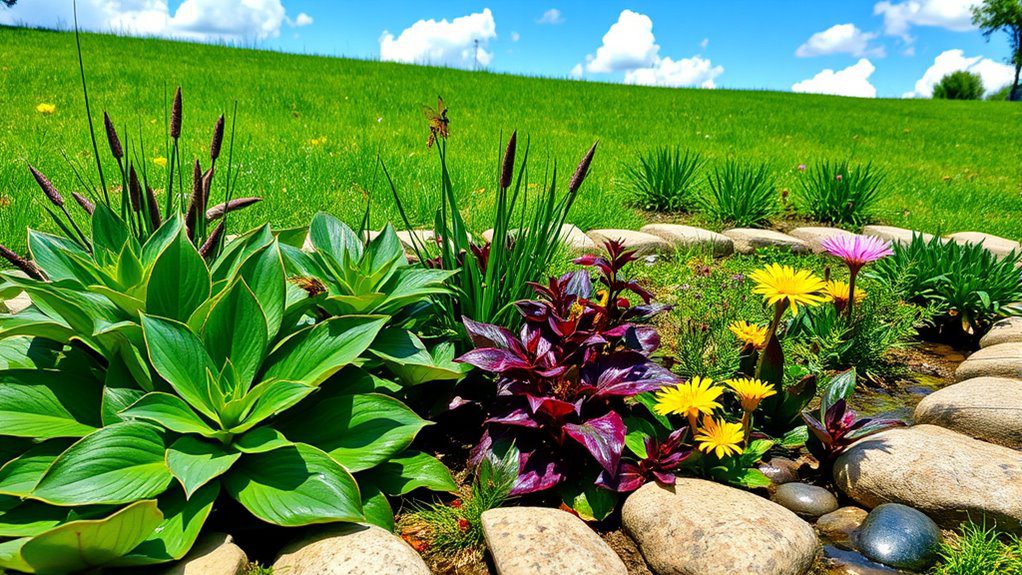
Creating a rain garden is an excellent way to manage stormwater runoff while enhancing your Michigan landscape. These gardens are shallow depressions filled with native plants that absorb rainwater, reducing erosion and promoting biodiversity. To design a rain garden, choose a location away from your home’s foundation, select native plants that thrive in wet conditions, and guarantee proper drainage. This eco-friendly garden not only helps protect local waterways but also adds beauty and habitat for pollinators.
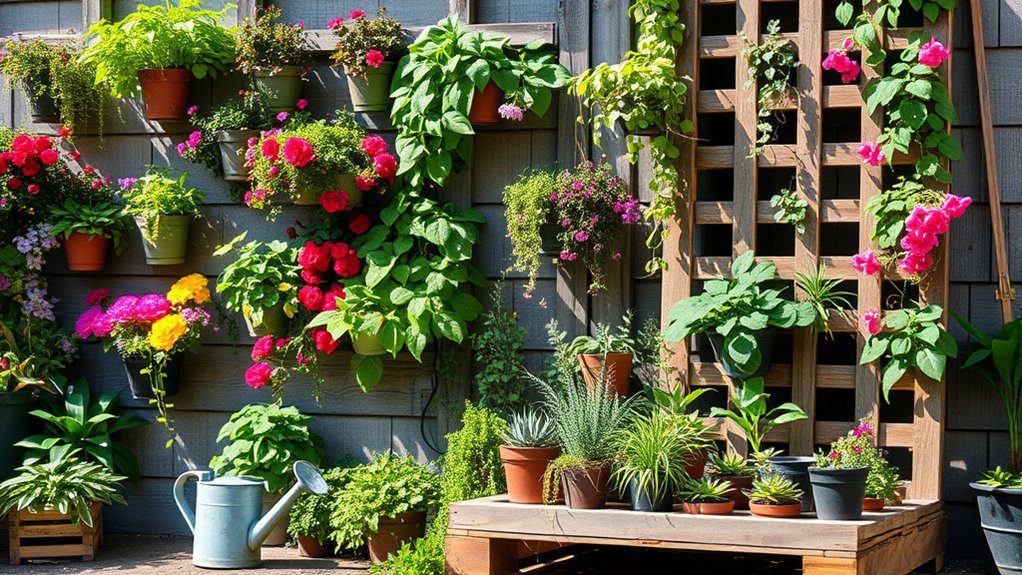
Building a vertical garden in Michigan is a fantastic way to make the most of limited outdoor space, especially in urban areas or small backyards. By utilizing wall-mounted planters, trellises, or repurposed pallets, you can create a stunning living wall that showcases flowers, herbs, or even vegetables. Vertical gardens not only enhance your garden’s aesthetic but also improve air quality and provide a habitat for beneficial insects, making them a practical and beautiful addition to any Michigan home.
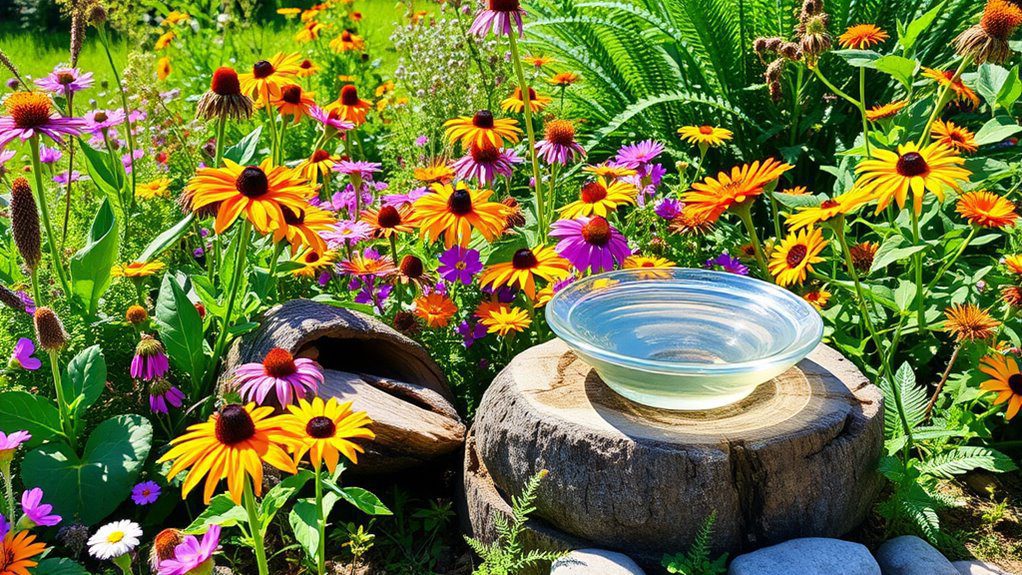
Creating a native pollinator habitat in your Michigan garden is a rewarding way to support local wildlife. By planting native flowers, shrubs, and trees, you can attract bees, butterflies, and other pollinators essential for a healthy ecosystem. Incorporate a variety of blooms that flower at different times to provide a consistent food source throughout the growing season. Additionally, include features like water sources and shelter, such as logs or stones, to enhance the habitat’s appeal.
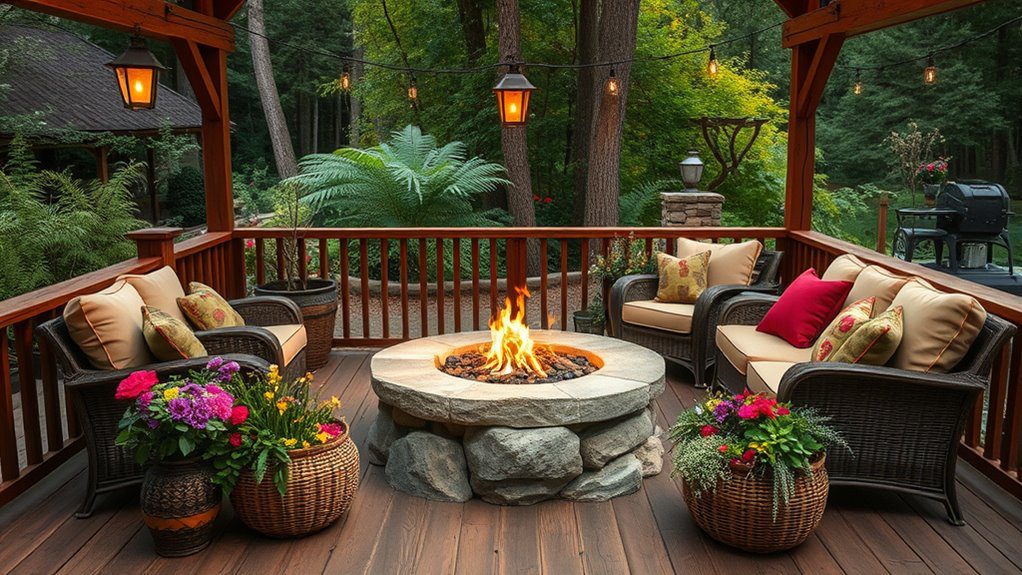
Designing a cozy rustic patio in Michigan can transform your outdoor space into a charming retreat. Incorporate natural materials like reclaimed wood and stone to create a warm, inviting atmosphere. Use comfortable seating with plush cushions, and add decorative elements such as lanterns and woven baskets. Surround your patio with native plants and flowers to enhance the natural feel, and consider a fire pit for warmth and ambiance during cool evenings. Enjoy the beauty of Michigan’s seasons in your tranquil outdoor haven.
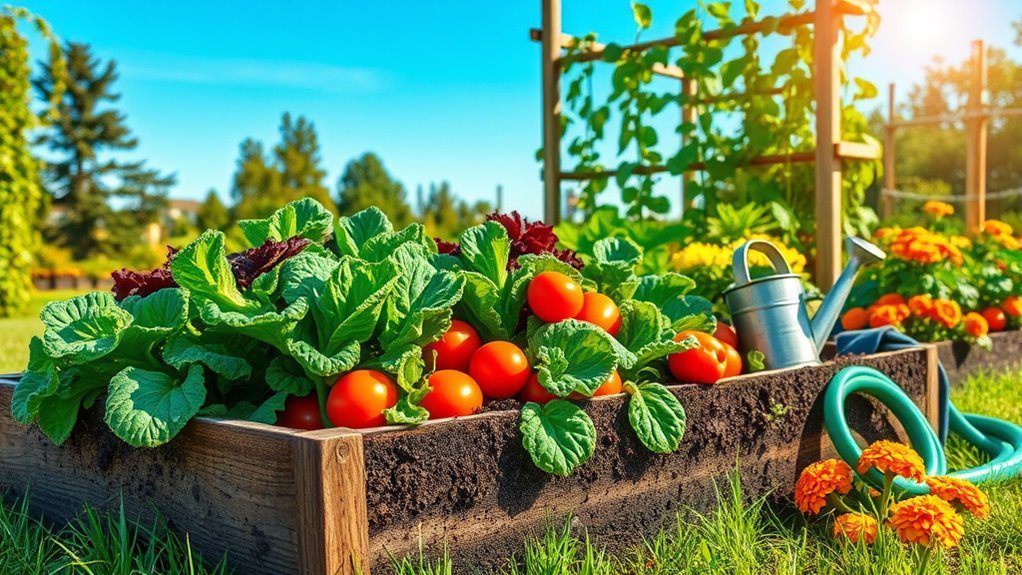
Establishing a vegetable garden in Michigan is a rewarding way to enjoy fresh produce throughout the growing season. Start by selecting a sunny, well-drained spot in your yard, ideally with at least six to eight hours of sunlight daily. Choose hardier crops like tomatoes, peppers, and leafy greens that thrive in the Michigan climate. Use raised beds for improved drainage and soil quality, and be sure to incorporate proper irrigation techniques to keep your plants healthy and productive.
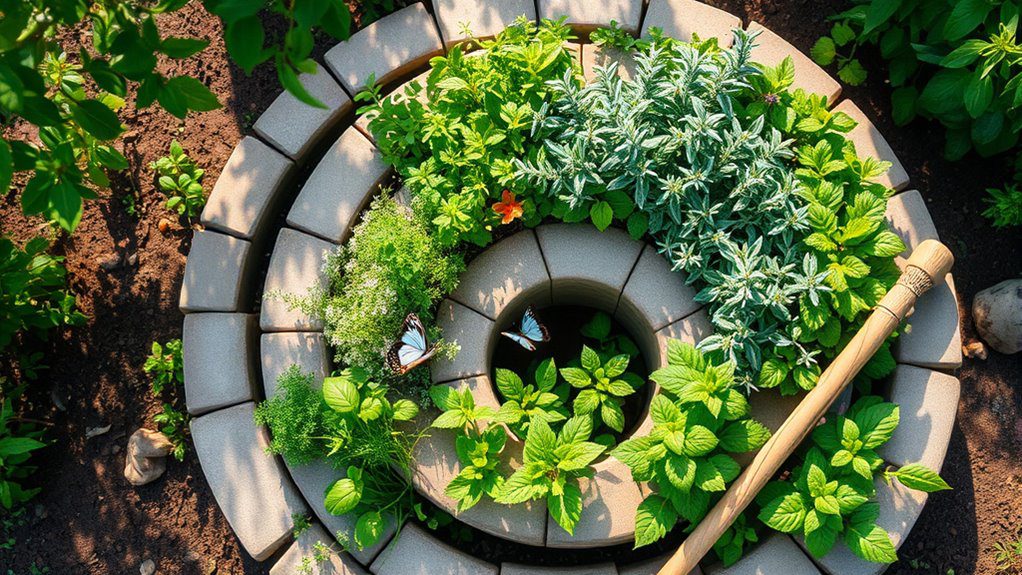
A herb spiral is a creative and space-efficient way to grow a variety of herbs, ideal for Michigan’s climate. This vertical garden design utilizes a spiral shape that allows for different microclimates, catering to various herbs’ needs. The top of the spiral is dry and sunny, perfect for Mediterranean herbs, while the bottom stays moist for more delicate varieties. Constructing a herb spiral not only maximizes space but also creates an attractive focal point in your garden.
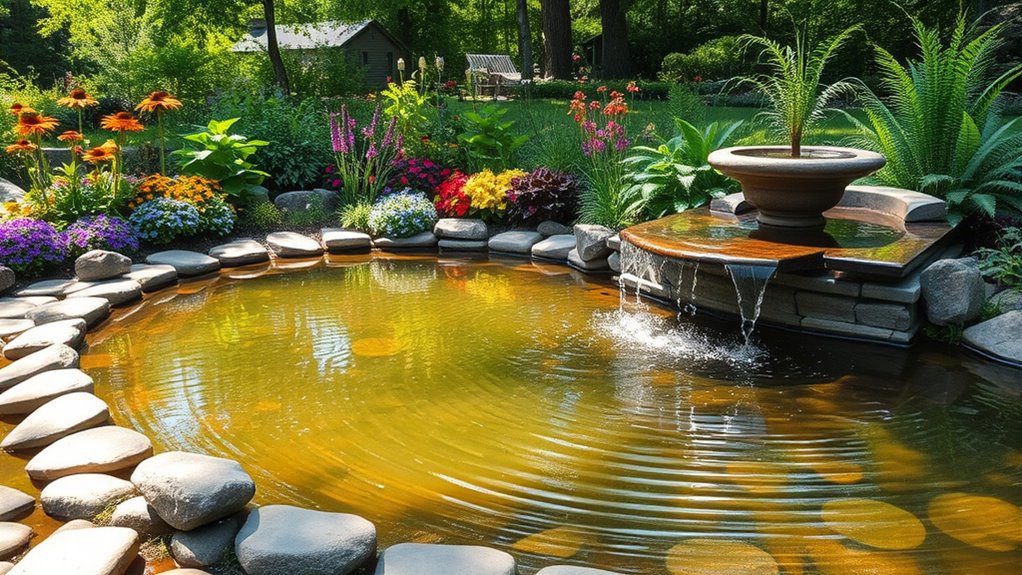
Installing a unique water feature in your Michigan garden can elevate its ambiance and attract local wildlife. Consider adding a charming pond, a cascading waterfall, or a decorative fountain. These elements not only provide soothing sounds but also create a serene focal point. When designing, think about native plants and stones that complement your water feature, ensuring it harmonizes with Michigan’s natural beauty and withstands the changing seasons.
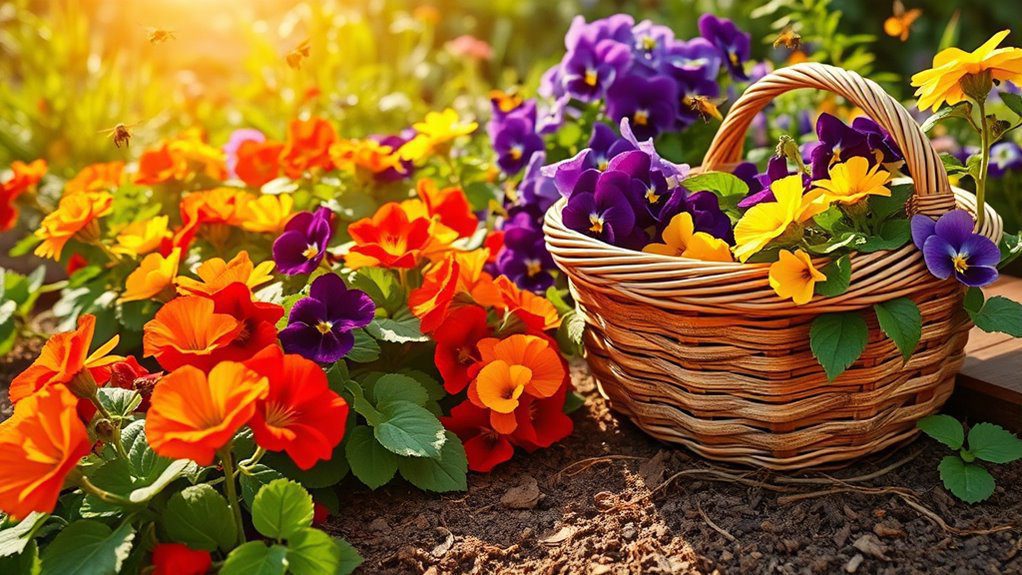
Creating an edible flower garden in Michigan can be a delightful and tasty endeavor. Choose vibrant blossoms like nasturtiums, pansies, and violets, all of which thrive in the state’s climate and offer unique flavors. Plant them in well-drained soil with plenty of sunlight, ensuring they have ample space to grow. These edible flowers can enhance salads, desserts, and drinks, adding both beauty and flavor to your culinary creations while attracting pollinators to your garden.
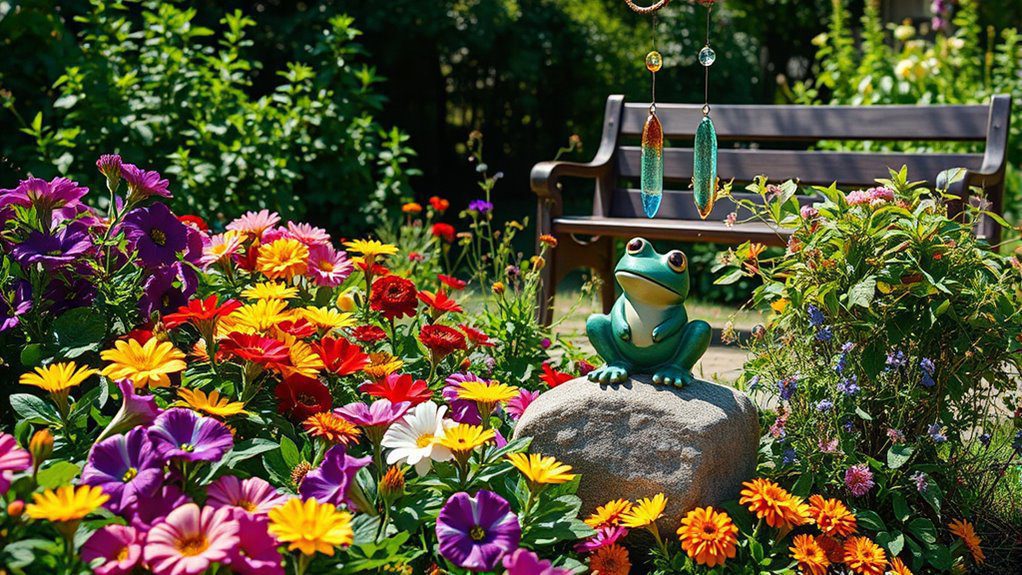
Incorporating garden art and sculptures into your Michigan landscape can elevate its aesthetic appeal and create focal points that capture the eye. From whimsical wind chimes to elegant metal sculptures, art can bring personality and creativity to your garden. Consider using locally crafted pieces that reflect Michigan’s natural beauty or themes inspired by the state’s rich cultural heritage. Arranging art amidst blooming flowers and lush greenery adds depth and invites visitors to explore and appreciate your unique outdoor space.
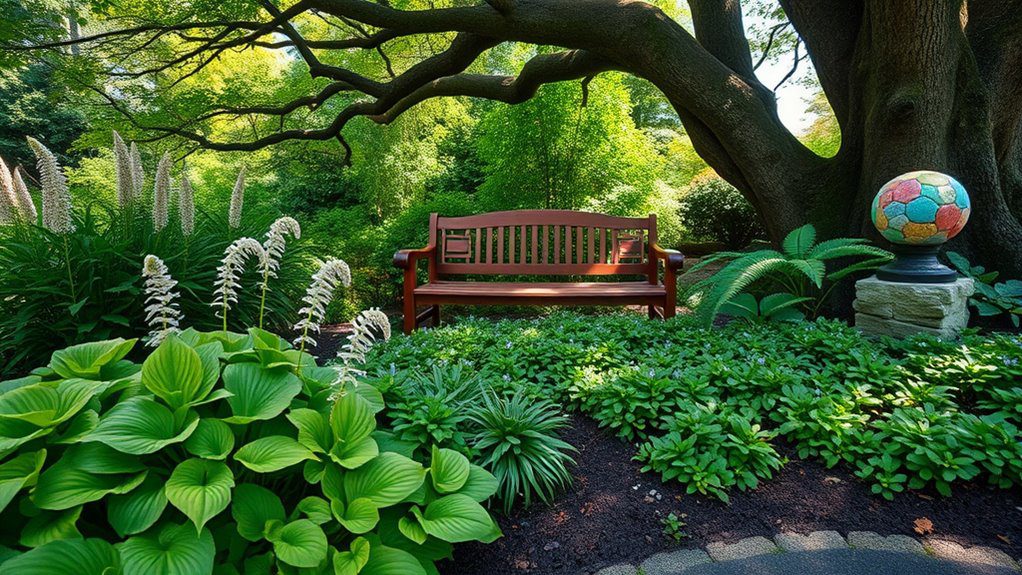
Creating a shade garden in Michigan can transform a dimly lit area into a lush retreat. Start by selecting shade-loving plants such as hostas, ferns, and astilbes that thrive in cooler temperatures. Incorporate layers with varying heights and textures to add visual interest. Consider ground covers like ajuga or creeping phlox to fill in bare spots. Adding decorative elements, such as handcrafted benches or art pieces, can enhance the tranquil atmosphere of this serene garden space.
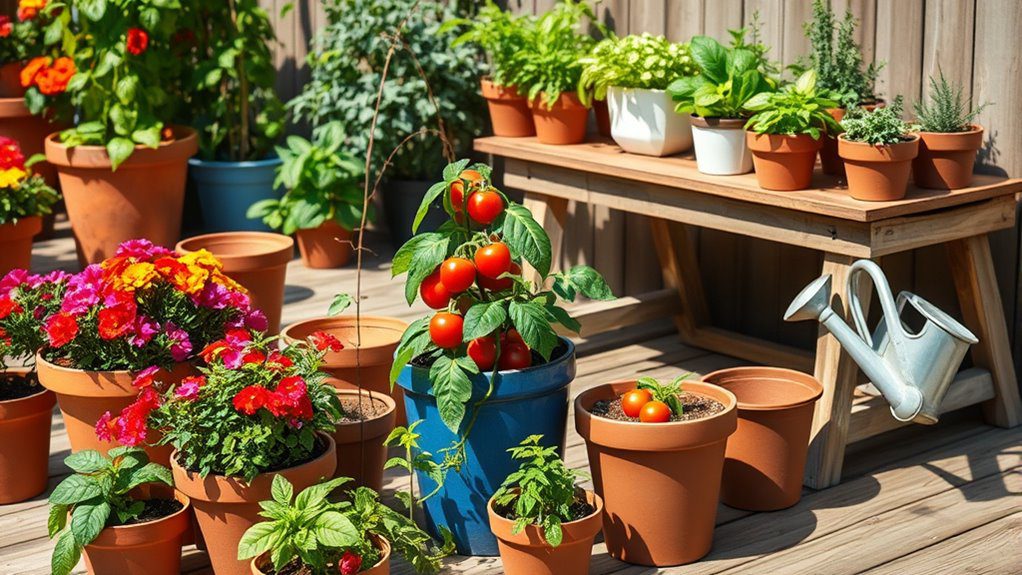
Setting up a container garden in Michigan is an ideal solution for maximizing limited space while showcasing beautiful plants. With the state’s varying climate, choose containers that can withstand cold winters and hot summers. Incorporate vibrant flowers, vegetables, or herbs in diverse sizes and shapes for visual interest. Position your containers in areas that receive adequate sunlight, and use quality potting soil to promote healthy growth. Regular watering and fertilization will guarantee a thriving garden throughout the growing season.
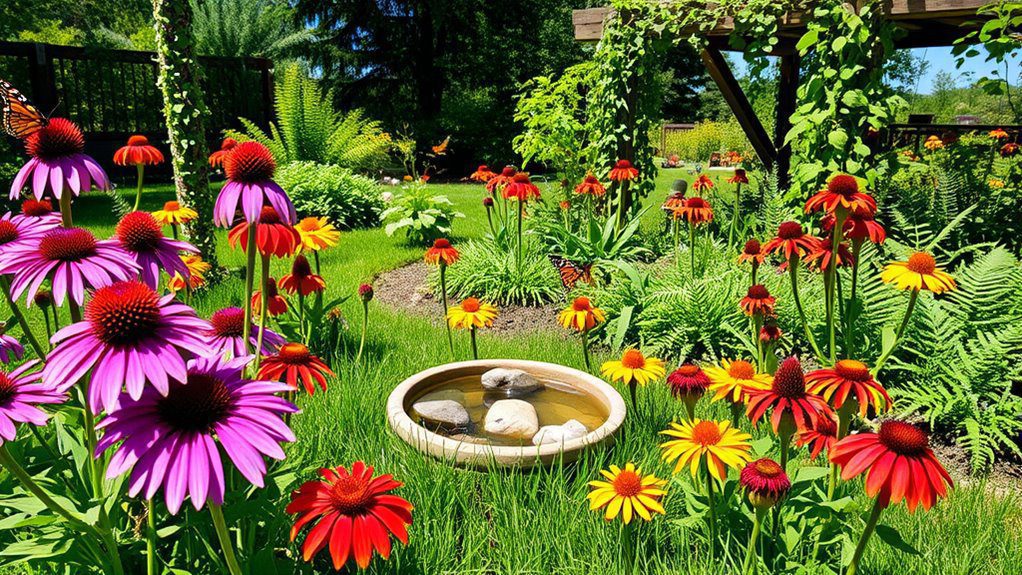
Creating a butterfly garden in Michigan is a delightful way to attract these beautiful pollinators while enhancing your outdoor space. Start by selecting native plants like milkweed, coneflowers, and bee balm, as they provide essential nectar and habitat. Incorporate a sunny area with some sheltered spots to protect butterflies from wind. Adding water sources, such as shallow dishes with rocks, can further entice them. With vibrant colors and diverse flora, your garden will become a butterfly haven.
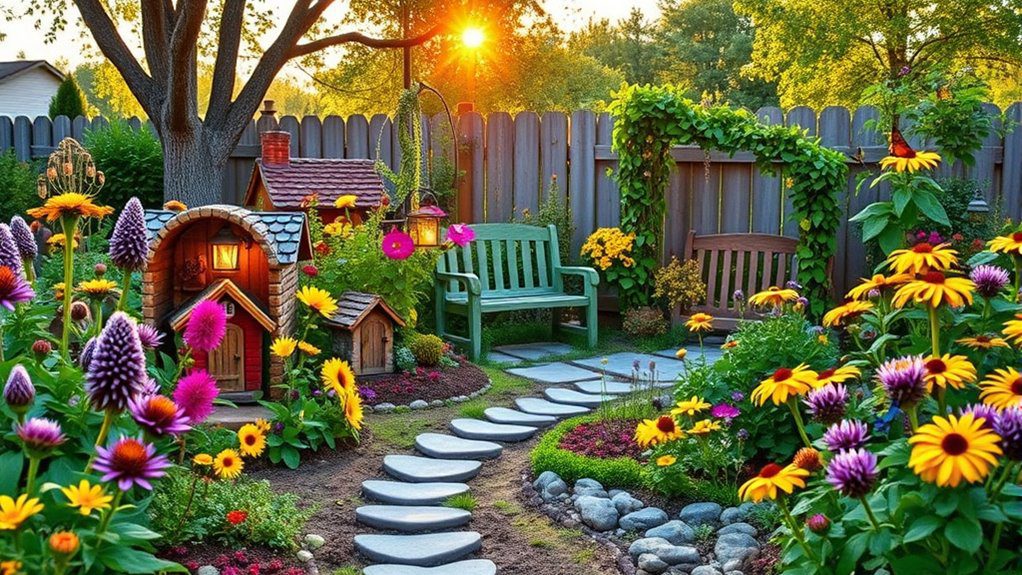
Creating a themed garden in Michigan can be a delightful way to showcase your personality and style while embracing the state’s unique climate. Consider themes like a whimsical fairy garden with miniature structures and native plants, a succulent or rock garden for low-maintenance beauty, or a butterfly garden filled with nectar-rich flowers to attract local pollinators. Incorporate elements like paths, statues, or benches to enhance the theme and create inviting spaces for relaxation and enjoyment. With careful planning, your themed garden can become a stunning retreat.
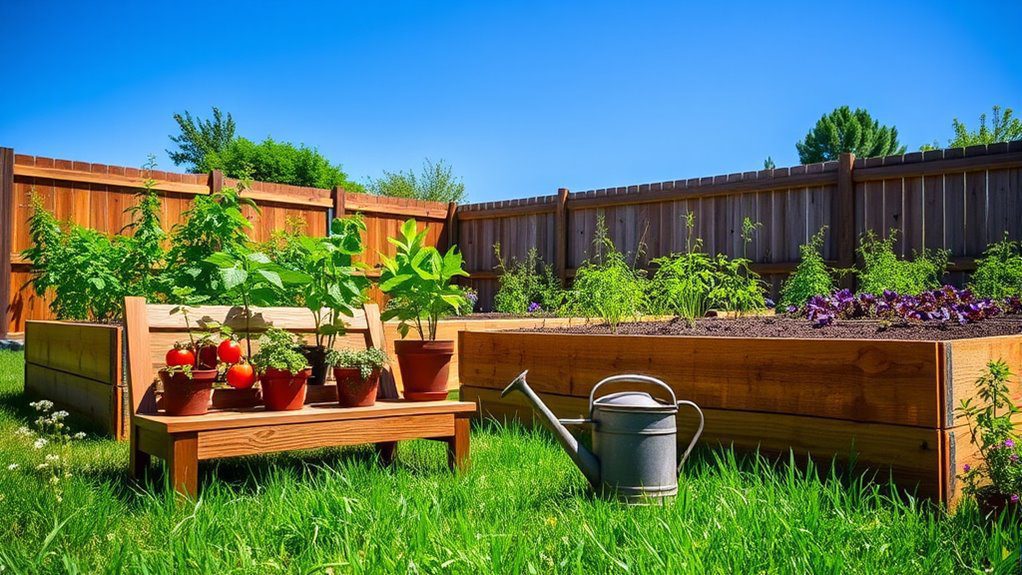
Building a raised bed garden is an ideal way to cultivate vegetables and flowers in Michigan’s varied climate. These beds allow for better drainage, improved soil quality, and easier access for planting and maintenance. Choose a sunny location and use untreated wood or bricks to create your structure. Fill it with a rich mixture of soil and compost to nourish your plants. Raised beds can extend your growing season and help manage weeds and pests more effectively.
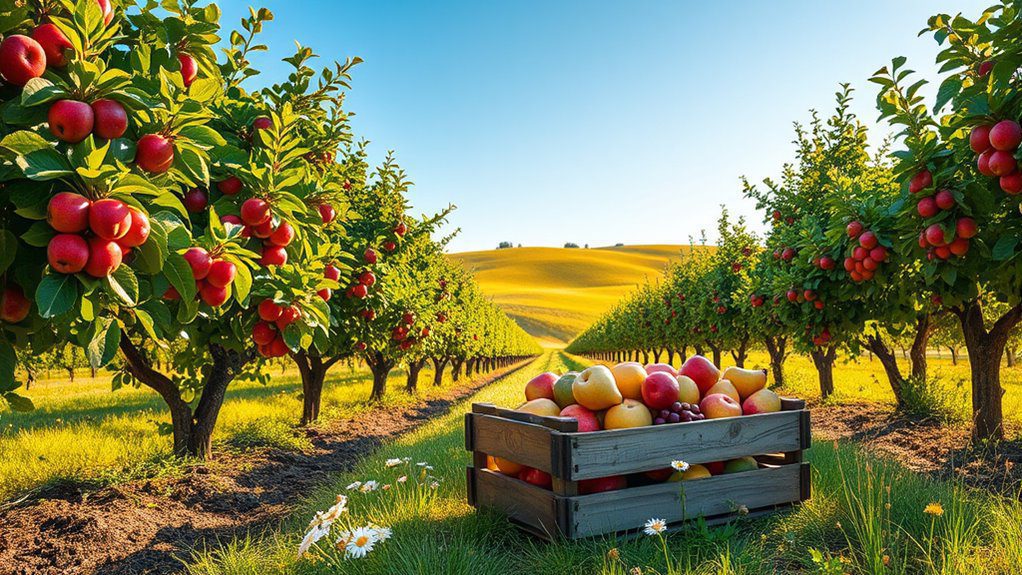
Implementing an orchard in your Michigan garden can be a rewarding endeavor, providing fresh fruit and enhancing your landscape. Choose varieties suited to Michigan’s climate, such as apples, pears, cherries, and plums. To guarantee successful growth, select a well-drained site with ample sunlight and plan for spacing to allow trees to mature. Incorporate native plants to support local wildlife, and consider companion planting to boost pollination. With proper care, your orchard can yield delicious fruit for years to come.
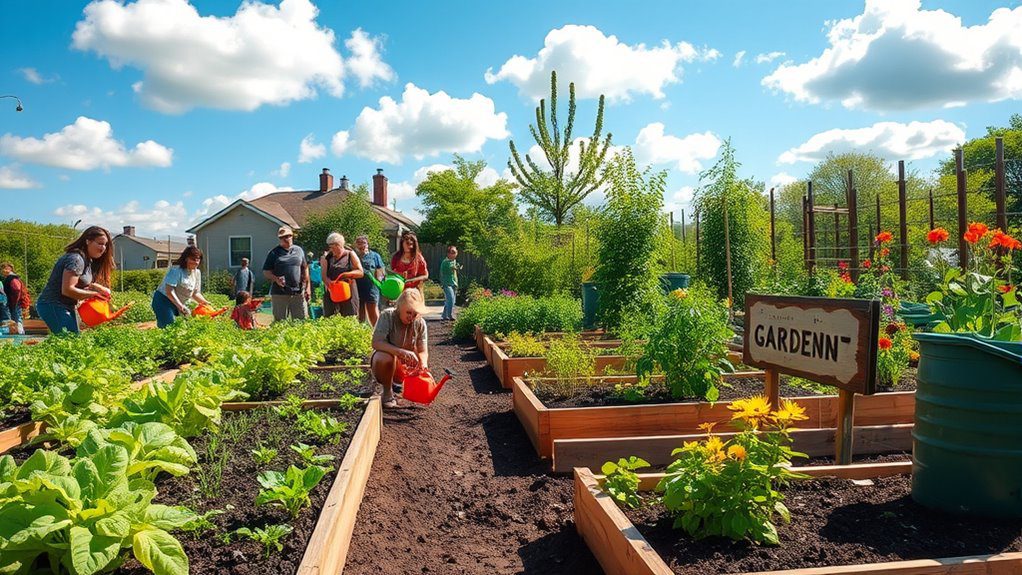
Starting a community garden in Michigan is a fantastic way to bring neighbors together and promote sustainability. By transforming a vacant lot or underutilized space into a vibrant garden, you create an opportunity for residents to grow fresh produce, share gardening tips, and participate in educational workshops. This initiative not only fosters a sense of community but also encourages healthier eating habits and environmental stewardship. Collaborate with local organizations to secure resources and create a flourishing green space that benefits everyone.
By embracing these 17 garden ideas, you’re not just transforming your space; you’re cultivating a deeper connection to nature and your community. As you create habitats for pollinators and grow your own produce, you might discover a sense of purpose blooming alongside your plants. Each seed you sow reflects your commitment to sustainability, making coincidence a beautiful reminder that your garden isn’t just a landscape—it’s a vibrant ecosystem that nurtures life and fosters togetherness in unexpected ways.
